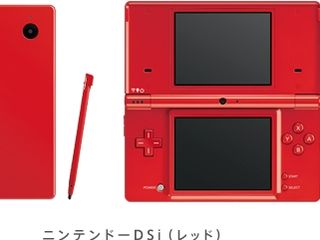Nintendo develops motion-controlled handheld
Hear that? That was the sound of a thousand fanboys screaming

Nintendo news this week is very much in line with what we have become used to of late. Sales are pretty healthy, despite the global recession. Miyamoto will be showing a lot on the Wii's new Zelda game at E3 2010. And Nintendo president Satoru Iwata is looking to develop a motion-controlled successor to the massively popular DS handheld.
Wait. That last bit. That's a new bit isn't it?
In addition to promising more on the barking mad 'Wii Vitality Sensor' at E3 this July – which will undoubtedly make them trillions more Yen from eager casual gamers and housewives willing to 'upgrade' their Wii Fit experience yet again next Christmas – Mr Iwata has told a Japanese newspaper that the next major revolution in handheld gaming is going to be motion control.
Motion-controlled GameBoy 3?
"[It will have] highly detailed graphics," Iwata told Japan's Asahi Shimbun newspaper. "And it will be necessary to have a sensor with the ability to read the movements of people playing."
Critics are already jumping on Iwata's comments and claiming that the Japanese gaming company is now copying Apple – which has been incredibly successful with the iPhone accelerometer in the gaming market in the last year.
Still, whether or not you buy the rather childish theory that multi-billion pound mega-corporations such as Sony, Apple, Nintendo and Microsoft simply 'copy' each other, like children in the primary school playground, or whether you buy the theory that product development does not exist in a magical vacuum and improves slowly, iteratively, with companies looking to each other to see what works and what doesn't, it is good to see that Nintendo is already seriously thinking about the future of handheld gaming.
Get daily insight, inspiration and deals in your inbox
Get the hottest deals available in your inbox plus news, reviews, opinion, analysis and more from the TechRadar team.
After all, it would be naive to think that all the above-mentioned companies didn't have research and development departments with hundreds of very clever people employed to look at the commercial possibilities of 3D, motion-control, new forms of sense-control and other new gaming control technologies that most of us have not yet dreamed of.
Wouldn't it?
Via Kotaku
Most Popular


